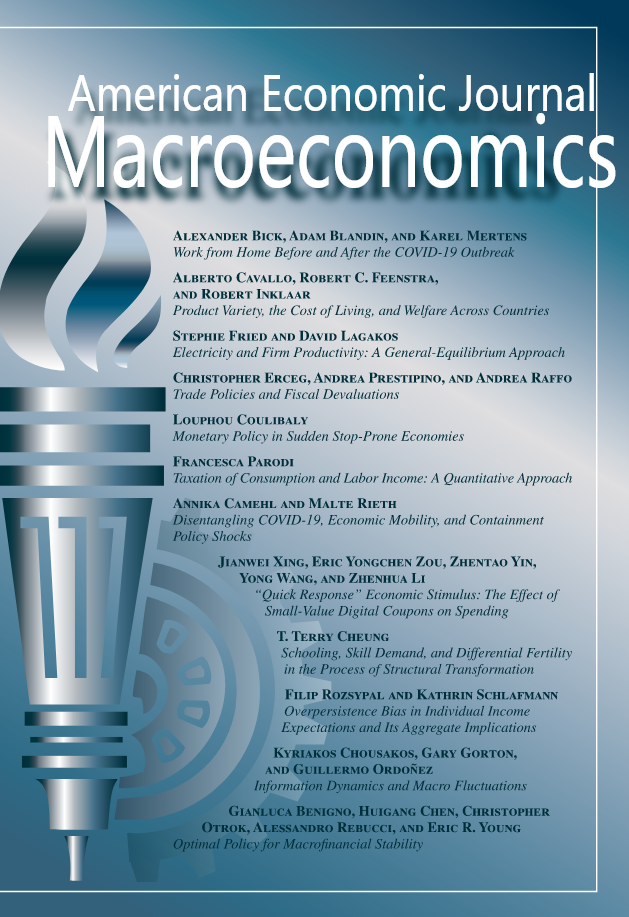风险、大学生溢价与总人力资本投资
IF 5.7
1区 经济学
Q1 ECONOMICS
引用次数: 22
摘要
尽管大学收入溢价一直保持在较高水平,但对大学教育的投资仍然很低。我们可以通过考虑上大学的风险,特别是不能毕业的可能性来理解这个明显的难题。有合理概率完成大学学业的学生已经入学,而对于那些没有入学的学生来说,低完成机会削弱了大学溢价上升的影响。在没有提高大学准备的情况下,我们的定量结果表明,技能偏向的技术变革的持续长期趋势可以预期主要是增加收入不平等,而不是大学成绩。(jel e24, i22, i23, j24, j31, o33)本文章由计算机程序翻译,如有差异,请以英文原文为准。
Risk, the College Premium, and Aggregate Human Capital Investment
Despite increases in the college earnings premium to persistently high levels, investment in college education remains low. We can understand this apparent puzzle by considering the risk of attending college and, in particular, the possibility of failing to graduate. Students with a reasonable probability of completing college already enroll, and for those who do not enroll, the low chance of completion blunts the impact of the rising college premium. In the absence of improved college readiness, our quantitative results suggest that continuing long-standing trends in skill-biased technological change can be expected primarily to increase earnings inequality rather than college attainment. (JEL E24, I22, I23, J24, J31, O33)
求助全文
通过发布文献求助,成功后即可免费获取论文全文。
去求助
来源期刊

American Economic Journal-Macroeconomics
ECONOMICS-
CiteScore
8.20
自引率
1.70%
发文量
58
期刊介绍:
American Economic Journal: Macroeconomics focuses on studies of aggregate fluctuations and growth, and the role of policy in that context. Such studies often borrow from and interact with research in other fields, such as monetary theory, industrial organization, finance, labor economics, political economy, public finance, international economics, and development economics. To the extent that they make a contribution to macroeconomics, papers in these fields are also welcome.
 求助内容:
求助内容: 应助结果提醒方式:
应助结果提醒方式:


